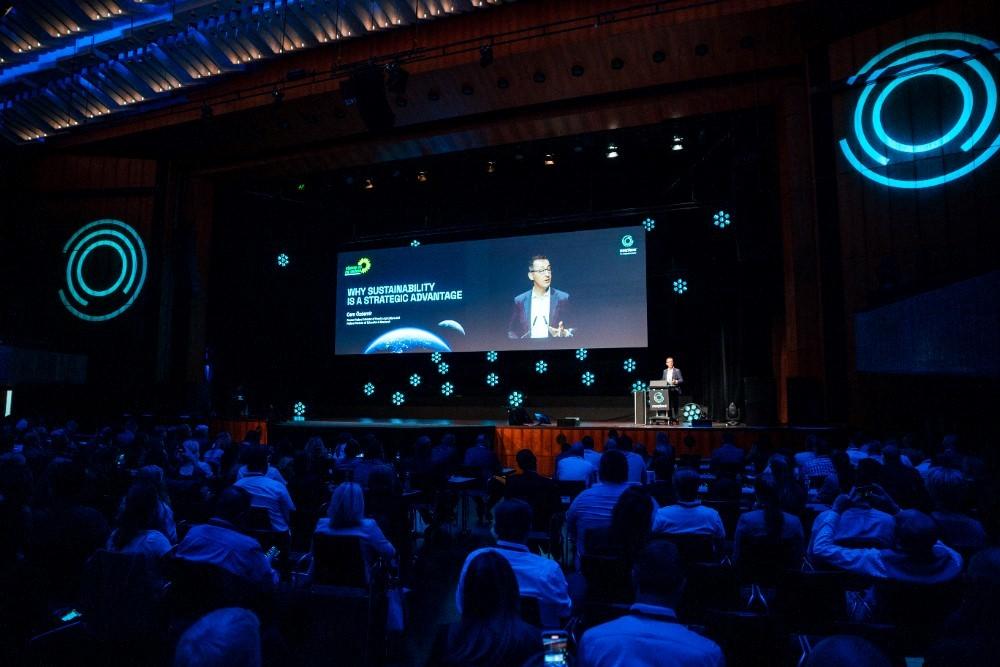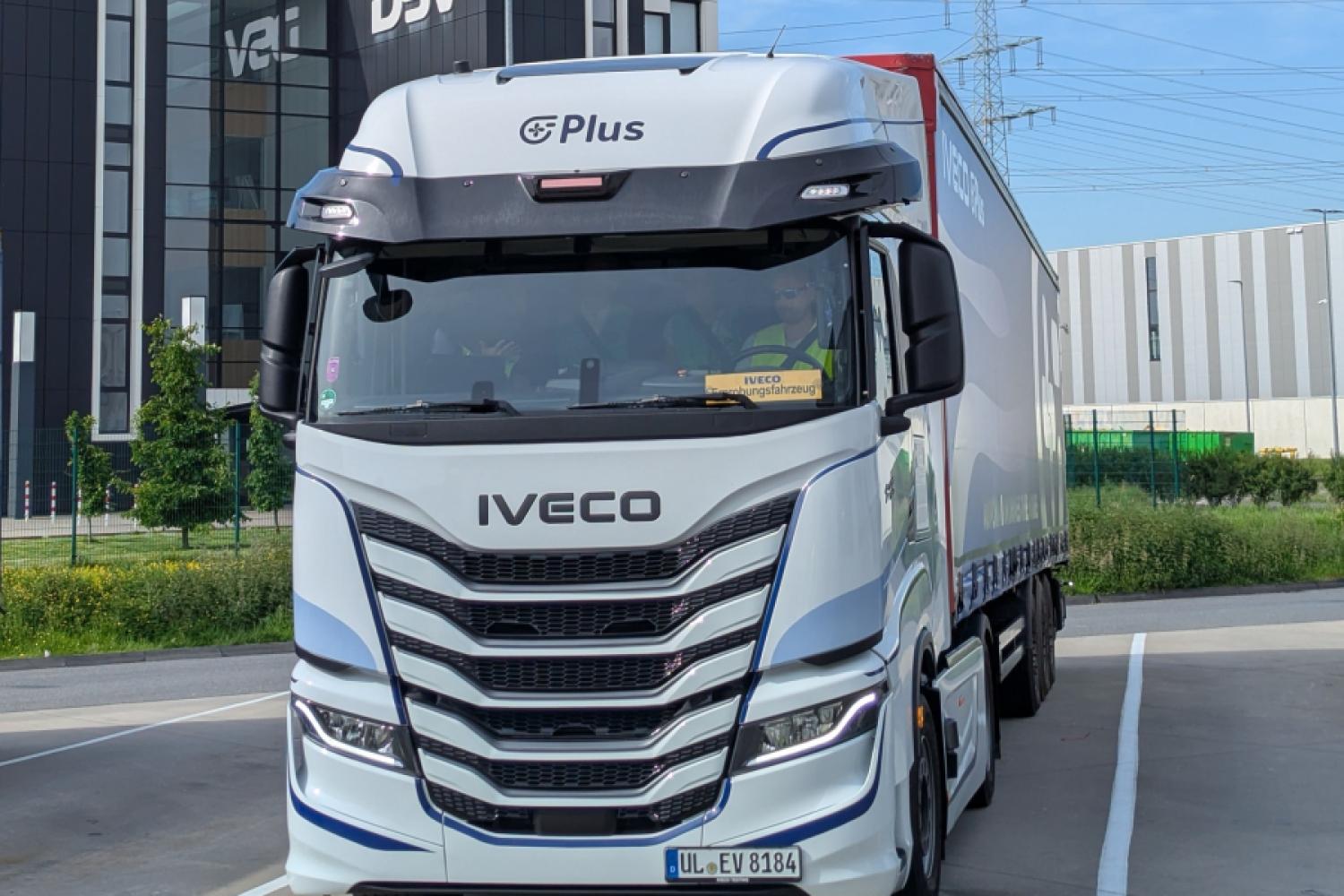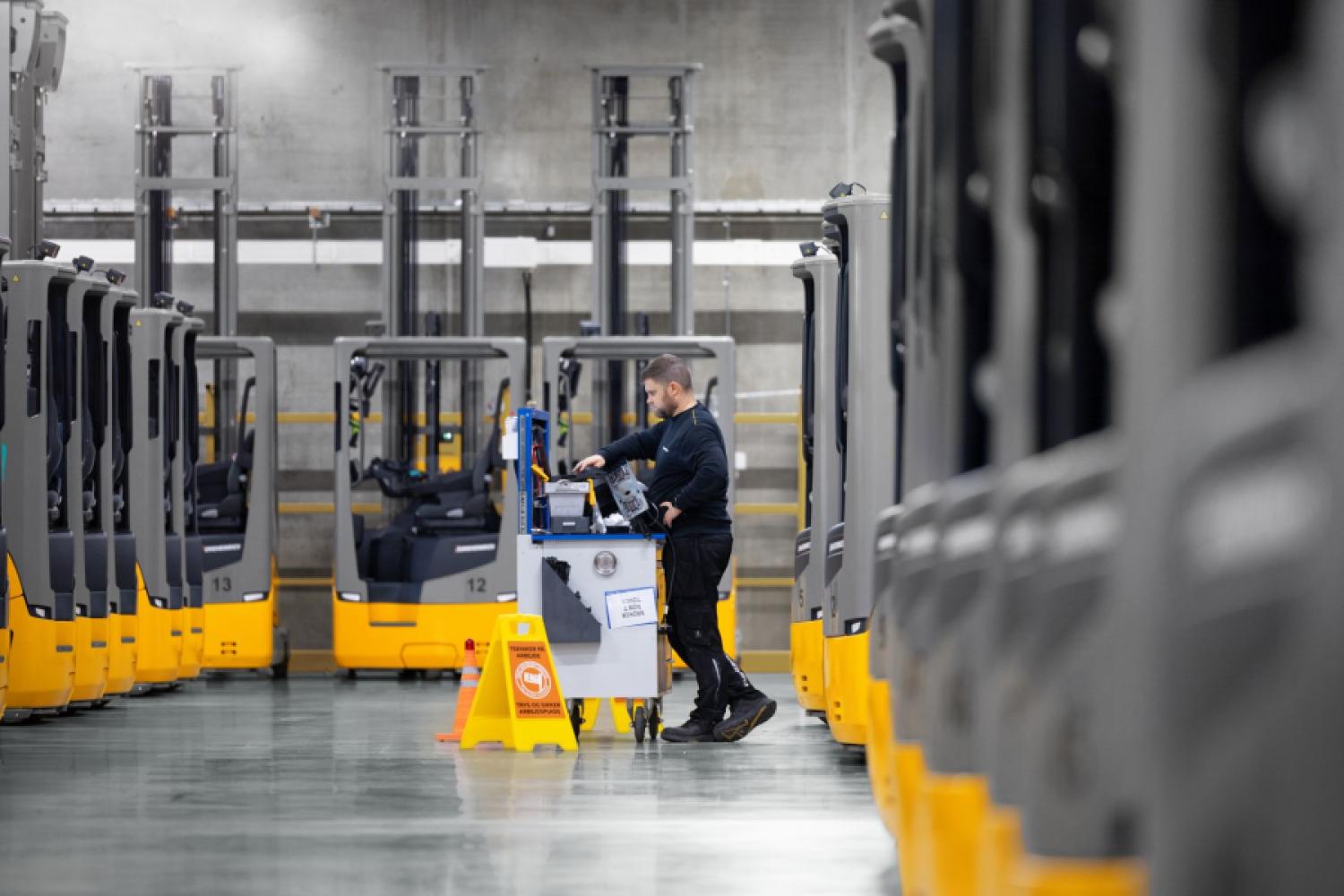“One Planet. One Hub. One Event.” Under this guiding principle, Osapiens, a specialist in ESG software, brought together more than 2,200 guests from politics, business, and technology at this year's Sustainability osapiens Summit (SoS.25) in the Mannheim Rosengarten. The summit on May 14 focused on how regulations can become strategic opportunities—and how sustainability and transparency can be expanded into real competitive advantages.
The summit aimed to send a strong signal: Despite current debates such as the EU omnibus initiative, sustainability is not retreating but continues to gain relevance, according to a press release. More and more companies, according to the provider, are going beyond mere compliance—they are structuring themselves more sustainably and using regulatory requirements as levers for efficiency, resilience, and growth.
According to the organizers, more than 150 speakers shaped the SoS.25 with lectures, panels, and practical deep-dive sessions. In more than 20 thematically focused tracks, participants gained insights into current and upcoming regulations such as CSRD, EUDR,
EU taxonomy, CBAM, NIS2, product compliance, and traceability—complemented by industry-specific use cases. In addition to leading companies such as Rewe Digital, Neumann Kaffee Gruppe, Otto, and Kühne+Nagel, organizations such as Goldman Sachs Sustain, UNIDO, EFRAG, Global G.A.P., KPMG, and GS1 also provided insights. The central question running through all formats: How does sustainability become concretely measurable, controllable—and a differentiating competitive advantage?
Impulses for Sustainable Economic Policy
At the summit's opening, former Federal Minister Cem Özdemir spoke in his keynote on the topic “Why Sustainability is a Strategic Advantage,” explaining that companies must no longer see sustainability as a burden but as an investment in future viability. Especially in a geopolitically and economically challenging environment, it is crucial to create reliable framework conditions—particularly for medium-sized businesses. Solutions must be practical, affordable, and scalable.
Teresa Ribera, Executive Vice President for a Fair, Clean, and Competitive Transition at the European Commission, emphasized in her speech the strategic importance of digital supply chain
and company data for Europe: They are the foundation for transparency, innovation capability, and economic independence—and thus for the continent's long-term competitiveness.
Sustainability is More Than Just Compliance
Rewe Digital illustrated how regulatory requirements such as the EU Deforestation Regulation (EUDR) can be used as drivers for optimizing internal processes. Tommy Stellmacher, Director of Procurement Solutions, reported how Rewe has established a product-based approach with the “osapiens HUB.” This has halved manual processing steps and reduced the number of information requests to suppliers by up to 90 percent. The result is fewer interfaces, faster decisions, and significantly increased operational efficiency.
Together with Osapiens, Otto is launching a strategic co-innovation to help companies efficiently, sustainably, and future-proof meet the growing regulatory requirements in the area of product compliance. These include the Digital Product Passport (DPP), the EU Battery Regulation, and the General Product Safety Regulation (GPSR). Alexander Rhetz, Head of Quality & Compliance Management, emphasized the importance of a central
data backbone: “We are creating a continuous view of our products—from regulatory assessment to integration into strategic supplier decisions.”
Kühne+Nagel also emphasized the importance of transparency in the supply chain's depth—to the last supplier stage (Tier-n). With the help of the osapiens HUB, the company has automated risk profiles and introduced a standardized supplier evaluation. Digital penetration helps to identify weaknesses early and derive targeted measures. This is a crucial step in making global logistics networks more resilient and at the same time more efficient.
“Transparent supply chains are the most important asset for companies. With the right information, they can achieve three key goals,” says Alberto Zamora, Co-Founder and CEO of osapiens. “In the short term, they gain resilience and flexibility to respond to crises and uncertainties. In the medium term, they can quickly and reliably demonstrate their compliance with upcoming regulations. In the long term, companies become not only more resilient but also catalysts for sustainable investments.”






